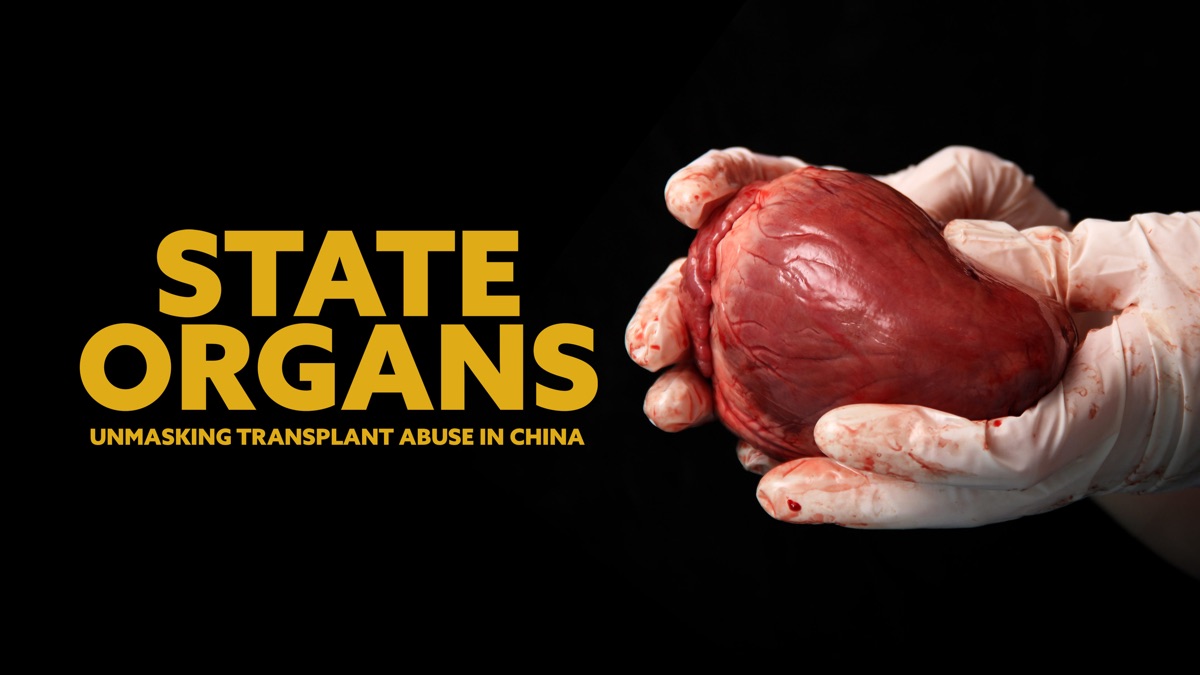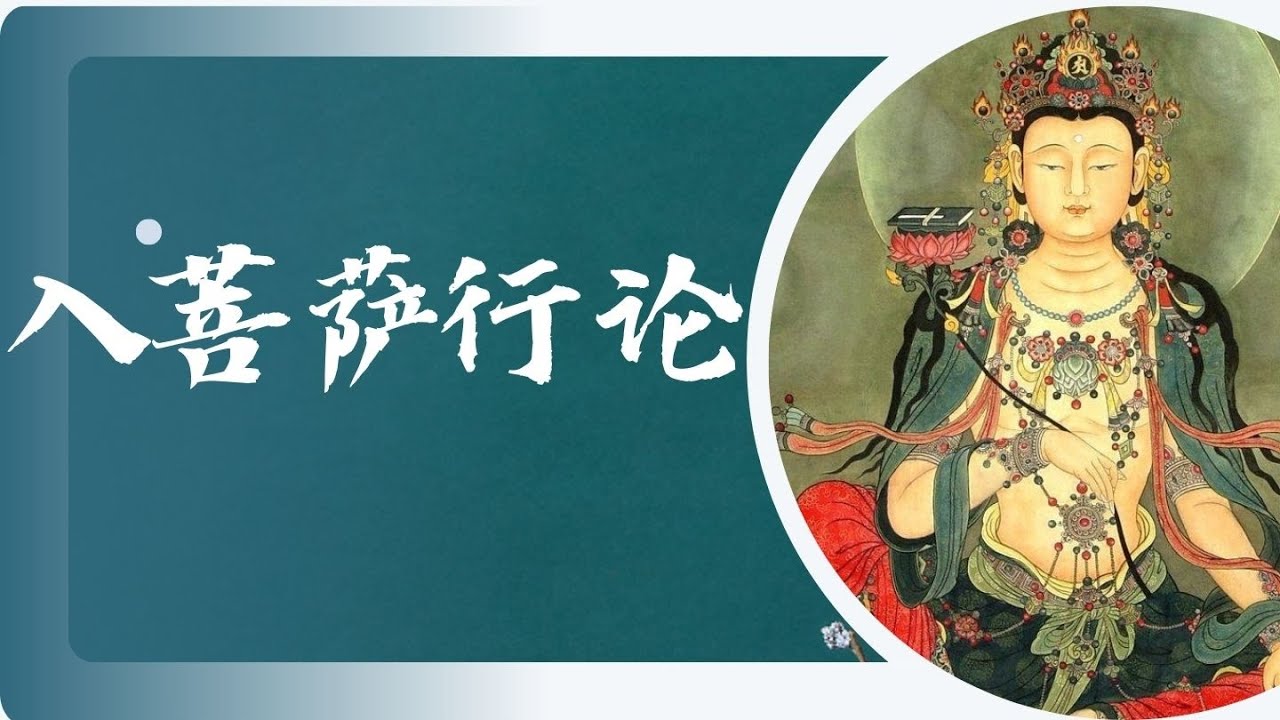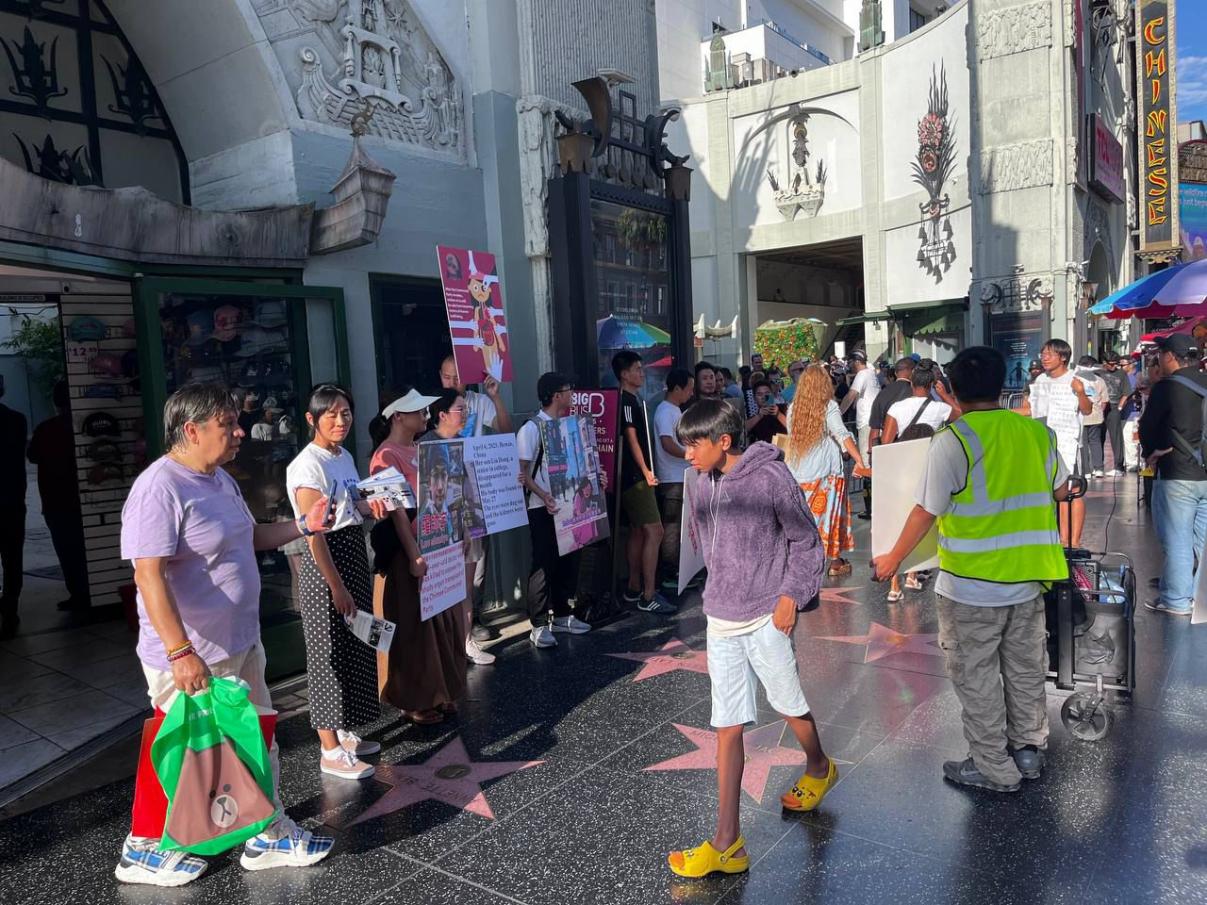—-参加第752次茉莉花行动 抵制中共非法器官移植好莱坞大游行有感
作者:陈婷
编辑:冯仍 责任编辑:胡丽莉
在洛杉矶好莱坞的阳光下,一群来自不同背景的信仰者静静站立在星光大道的街角。他们手中的展板上,是一幅幅难以直视的画面:儿童被关押在铁笼里、青年赤裸的身体上令人触目惊心的伤疤、母亲的哀嚎穿越海洋。这些图像并非艺术创作,而是源自真实的罪恶——对信仰群体活摘器官的系统性迫害。
我也站在人群中,手举着一块写有“STATE ORGANS”字样的展板。这是一部记录活摘器官的纪录片,更是控诉极权对肉体与灵魂双重戕害的证据。在人流如织的好莱坞大道上,我们不为吸引目光而站立,只是为了让沉默被打破,让被迫害者的声音穿透商业与娱乐的喧嚣。

在佛教教义中,“波旬”是迷惑众生、阻碍成佛之路的魔王,其特征并非外形狰狞,而在于善于伪装、扭曲真相。它往往披着正义、发展、安定的外衣,行压制、屠戮之实。在今天,某些政权的行为恰似波旬:以强大国家叙事掩盖恶行,以爱国之名打压宗教自由,以秩序的名义摧毁个体尊严。真理、慈悲、觉醒都成为待审之物,正如堪布索达吉所言:“世间最难对治的敌人,是披着利众外衣的嗔与痴。”
活摘器官,已非单纯政治问题,而是超越人类道德底线的罪恶行径。它以医院的名义进行,却抛弃了医学的伦理;它以司法的程序伪装,却无视了生命的尊严。若一个政权能系统性地对异见者、修行者进行活体摘除器官牟利,那么,这不仅是恶政的体现,更是堕入地狱行径。佛法教导众生尊重因果、慈悲众生,而这样的行为却是在颠覆因果、贩卖恐惧。
我们不能回避这个问题,也不该沉溺在“政治复杂”的借口中逃避讨论。那些活生生的个体,不是统计数字,而是与我们一样会哭、会痛、会求生的同类。他们的器官被冷冰冰地列入配型数据库,他们的信仰成了定罪的理由,他们的身体成为国家机器下的可供交易的资源。
而我们,作为信仰者、作为知情者、作为仍能自由表达的人,是否还能保持沉默?是否能对眼前的真相视而不见、听而不闻?正如索达吉堪布在《入菩萨行论》开示中所言:“真正的勇士,是不随八风所转的人。”面对波旬,不是以愤怒回应,不是以仇恨抗衡,而是以正知正见之力,安住于慈悲之中,持续发声,不为己利,只为破除迷雾。

这场请愿活动并不喧哗,也不激烈。人们只是静静站着,一小时、两小时,向路人递上传单,向记者讲述真相。我们明白,这种做法也许不会立刻改变世界,但它或许能为经过的人种下一个觉知的种子。就像佛法中所言:“一灯能破千年暗,一智可灭万劫痴。”哪怕只有一人因此去查阅、思考、共鸣,这便不是徒劳。

当日,一位美国游客在展板前停下许久。他轻声说:“我从未听说过这些。”他的眼神中有震惊,有不安。我递上传单:“真相可能令人不适,但它能让你自由。”这是一次心灵的碰撞,也是一次微光的传递。我们不求辩赢,不求掌声,只愿守护那一点点尚未熄灭的人性火种。
佛教讲缘起,信仰讲觉醒。我们愿意站在星光大道上,不是为了抗议一个国家,而是为了回应一个灵魂的呼唤。不是为了谴责一种体制,而是为了捍卫生命的不可侵犯。这不仅仅是政治立场的分野,而是人类基本价值的底线。
索达吉堪布在其多次讲法中提到:“恶行最终不能战胜真理,暴力也不能灭掉慈悲。”当我们以非暴力的方式发声时,我们并非软弱,而是选择了一种更深刻的坚强。即使面对冷漠与误解,我们依然要守住信仰的核心。
在这个世代,宗教自由已不再只是抽象的权利,而是抵御巨大黑暗时每一个人内心中所持有的明灯。愿我们都能做这盏灯的守护者。
愿被伤害的众生得安慰,愿施害者早日醒悟,愿更多的人看见真相,愿信仰成为穿越黑暗的力量,而不是沉默的陪葬品。
Between Faith and Silence: The Awakening of the Sin and Good Faith of Organ Harvesting
—-Participating in the 752nd Jasmine Action to resist the Communist Party of China’s illegal organ transplantation Hollywood parade
Abstract: In the Hollywood parade, the author witnessed believers expose the evil of the Communist Party of China’s live organ harvesting with silent actions. The article compares the reality with Buddhist righteousness, pointing out that silence is indulgence. Only compassion and courage can protect the bottom line of human nature and faith.
Author: Chen Ting
Editor: Feng Still Responsible Editor: Hu Lili
In the sunshine of Hollywood in Los Angeles, a group of believers from different backgrounds stood quietly on the corner of the Avenue of Stars. On the exhibition board in their hands, there are pictures that are difficult to see directly: children being locked up in iron cages, shocking scars on young people’s naked bodies, and mothers’ howling across the ocean. These images are not artistic creations, but come from real sins – the systematic persecution of live organ harvesting of religious groups.
I also stood in the crowd, holding a display board with the word “STATE ORGANS” in my hand. This is a documentary that records live organ harvesting, and it is also evidence of the double killing of the body and soul by the totalitarians. On the crowded Hollywood Boulevard, we do not stand to attract attention, but just to break the silence and let the voices of the persecuted penetrate the hustle and bustle of commerce and entertainment.

In Buddhist doctrine, “Bo Xun” is the demon king who confuses sentient beings and hinders the way to becoming a Buddha. Its characteristic is not that he is ferocious in appearance, but that he is good at disguise and distorting the truth. It often wears the cloak of justice, development and stability, and practices the reality of suppression and slaughter. Today, the behavior of some regimes is just like Bo Xun: covering up evil deeds with powerful state narratives, suppressing religious freedom in the name of patriotism, and destroying individual dignity in the name of order. Truth, compassion and awakening have all become things to be judged. As Kambusodagi said, “The most difficult enemy in the world to deal with is the fool who wears the cloak of benefit.”
Organ harvesting is no longer a mere political problem, but a sinful act that transcends the bottom line of human morality. It is carried out in the name of the hospital but abandons the ethics of medicine; it is disguised by judicial procedures but ignores the dignity of life. If a regime can systematically remove organs from dissents and practitioners for profit, then this is not only the embodiment of evil government, but also the act of falling into hell. Buddhism teaches sentient beings to respect cause and effect and be compassionate to sentient beings, but such behavior is subverting cause and effect and selling fear.
We can’t avoid this problem, nor should we indulge in the excuse of “political complexity” to avoid discussion. Those living individuals are not statistics, but the same kind as us who can cry, hurt and survive. Their organs are coldly included in the matching database, their beliefs become the grounds for conviction, and their bodies become tradable resources under the state apparatus.
And can we, as believers, knowers, and people who can still express themselves freely, remain silent? Can you turn a blind eye to the truth in front of you? As Sodaji Kambu said in the “On the Bodhisattva’s Theory”: “The real warrior is the one who does not turn with the eight winds.” In the face of Bo Xun, do not respond with anger, do not compete with hatred, but live in compassion with the power of right knowledge and right view, continue to speak out, not for self-interest, just to break the fog.

The petition was neither noisy nor intense. People just stood quietly for an hour or two, handing out leaflets to passers-by and telling reporters the truth. We know that this practice may not change the world immediately, but it may sow a seed of awareness for those who pass by. As it is said in Buddhism: “A lamp can break the darkness of a thousand years, and a wisdom can destroy ten thousand fools.” Even if only one person consults, thinks and empathizes with it, it is not in vain.

On that day, an American tourist stopped for a long time in front of the exhibition board. He whispered, “I’ve never heard of this.” There were shock and uneasiness in his eyes. I handed over the leaflet: “The truth may be uncomfortable, but it can set you free.” This is a collision of the soul and a transmission of light. We don’t ask for victory or applause. We just want to protect the little fire of humanity that has not been extinguished.
Buddhism talks about fate, and faith talks about awakening. We are willing to stand on the Avenue of Stars not to protest against a country, but to respond to the call of a soul. It is not to condemn a system, but to defend the inviolability of life. This is not only the field of political position, but also the bottom line of the basic values of human beings.
Sodajikmbu mentioned in his many lectures: “Evil deeds cannot defeat the truth in the end, and violence cannot extinguish compassion.” When we speak out in a non-violent way, we are not weak but choose a deeper strength. Even in the face of indifference and misunderstanding, we still have to stick to the core of our faith.
In this generation, religious freedom is no longer just an abstract right, but a bright light in everyone’s heart when resisting the great darkness. May we all be the guardians of this lamp.
May the injured sentient beings be comforted, may the perpetrators wake up as soon as possible, may more people see the truth, and may faith become the power to cross the darkness, not the silent burial goods.etween Faith and Silence: The Awakening of the Sin and Good Faith of Organ Harvesting



曾群兰-rId7-480X640.jpeg?w=218&resize=218,150&ssl=1)


赵雪峰−声援中华民国-rId4-1875X2500.jpeg?w=100&resize=100,70&ssl=1)
冯仍-rId6-1920X1080.jpeg?w=100&resize=100,70&ssl=1)
